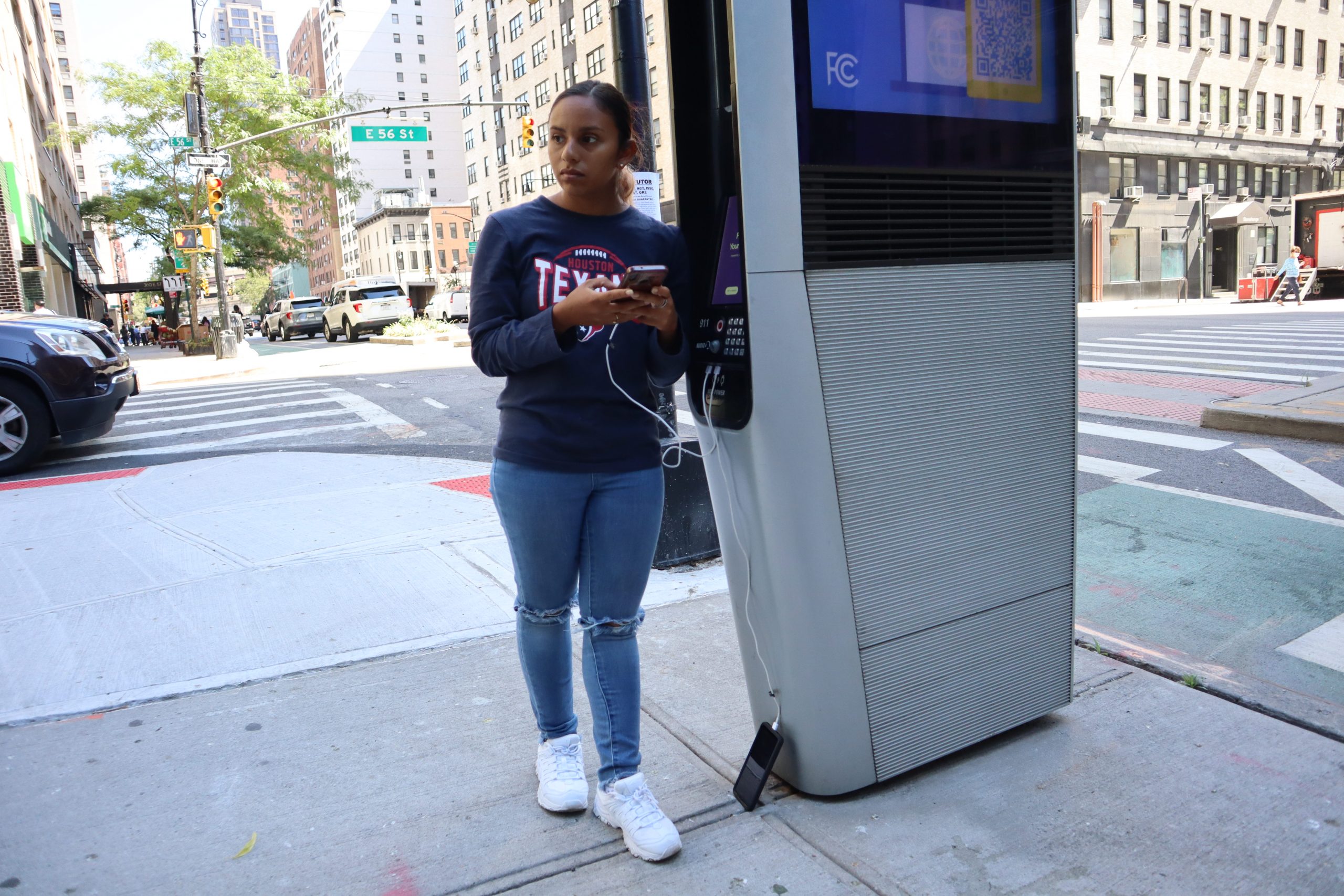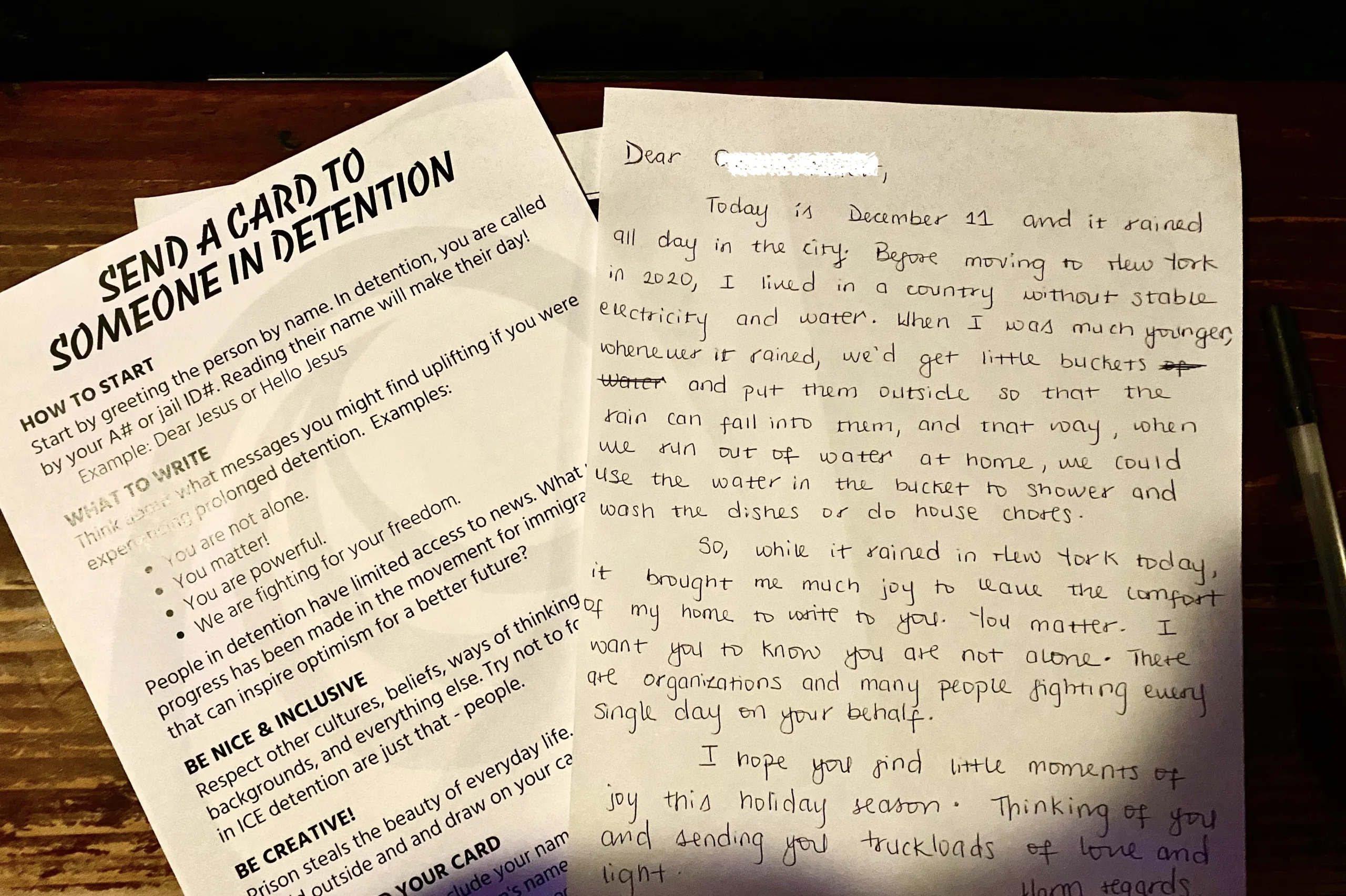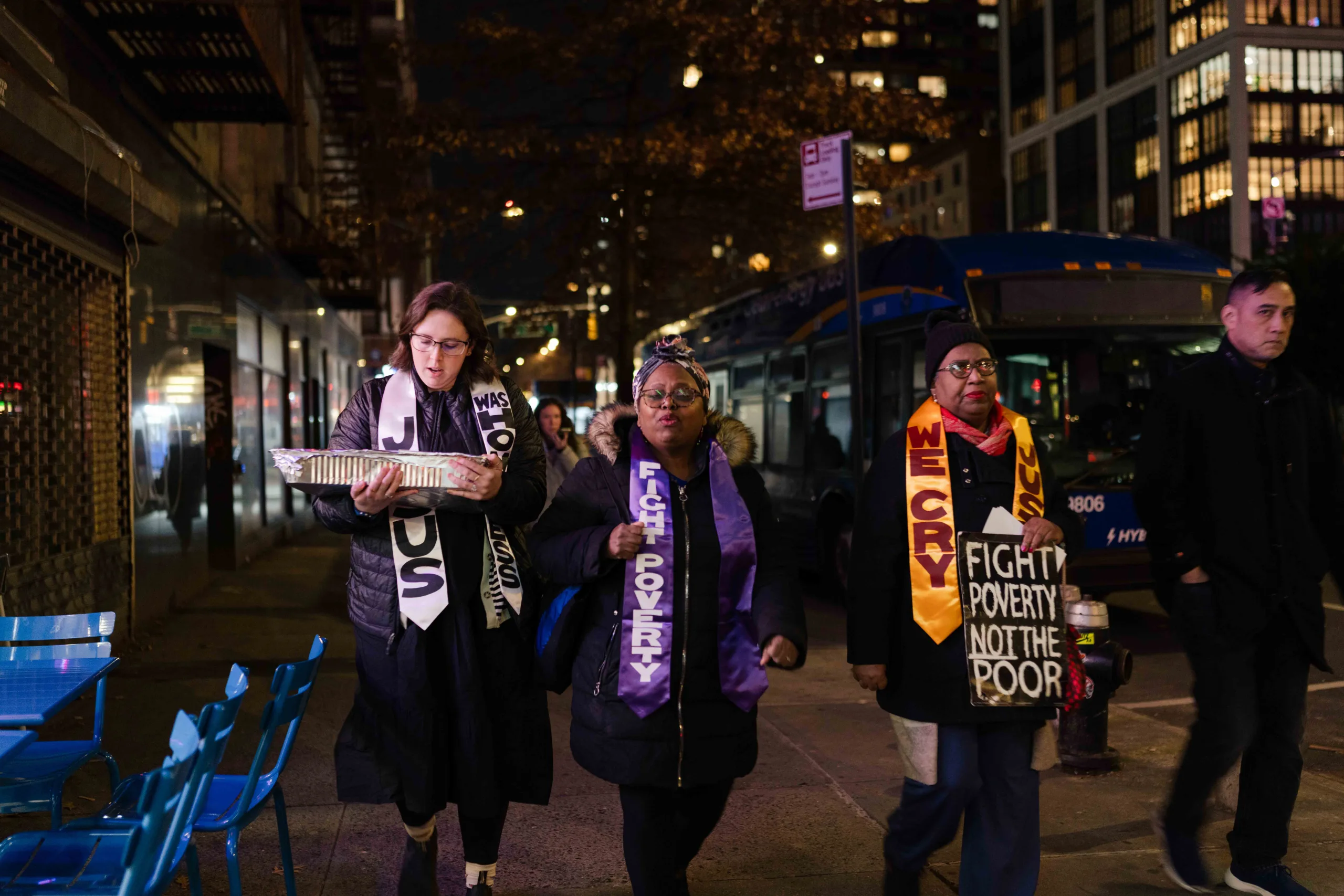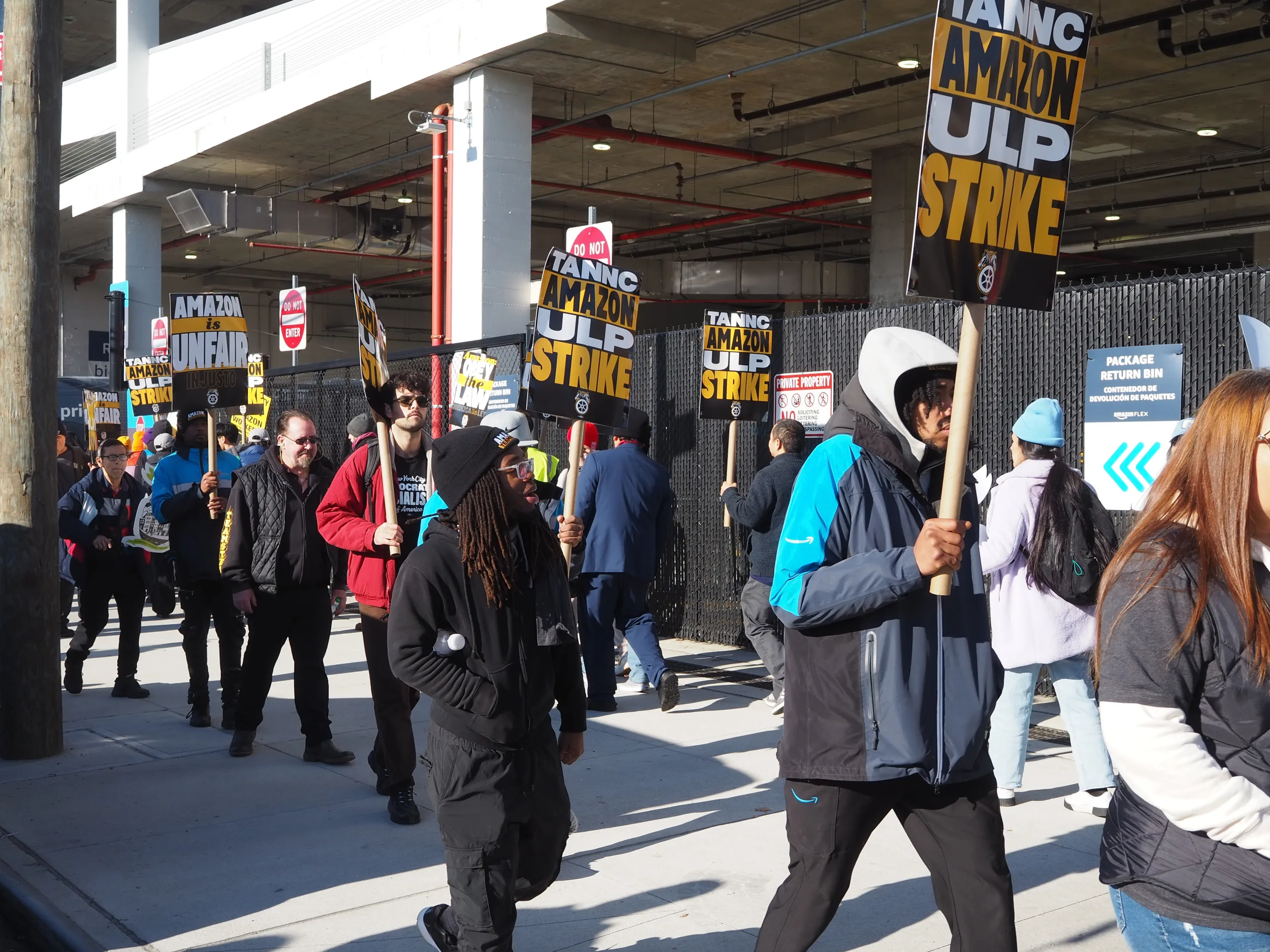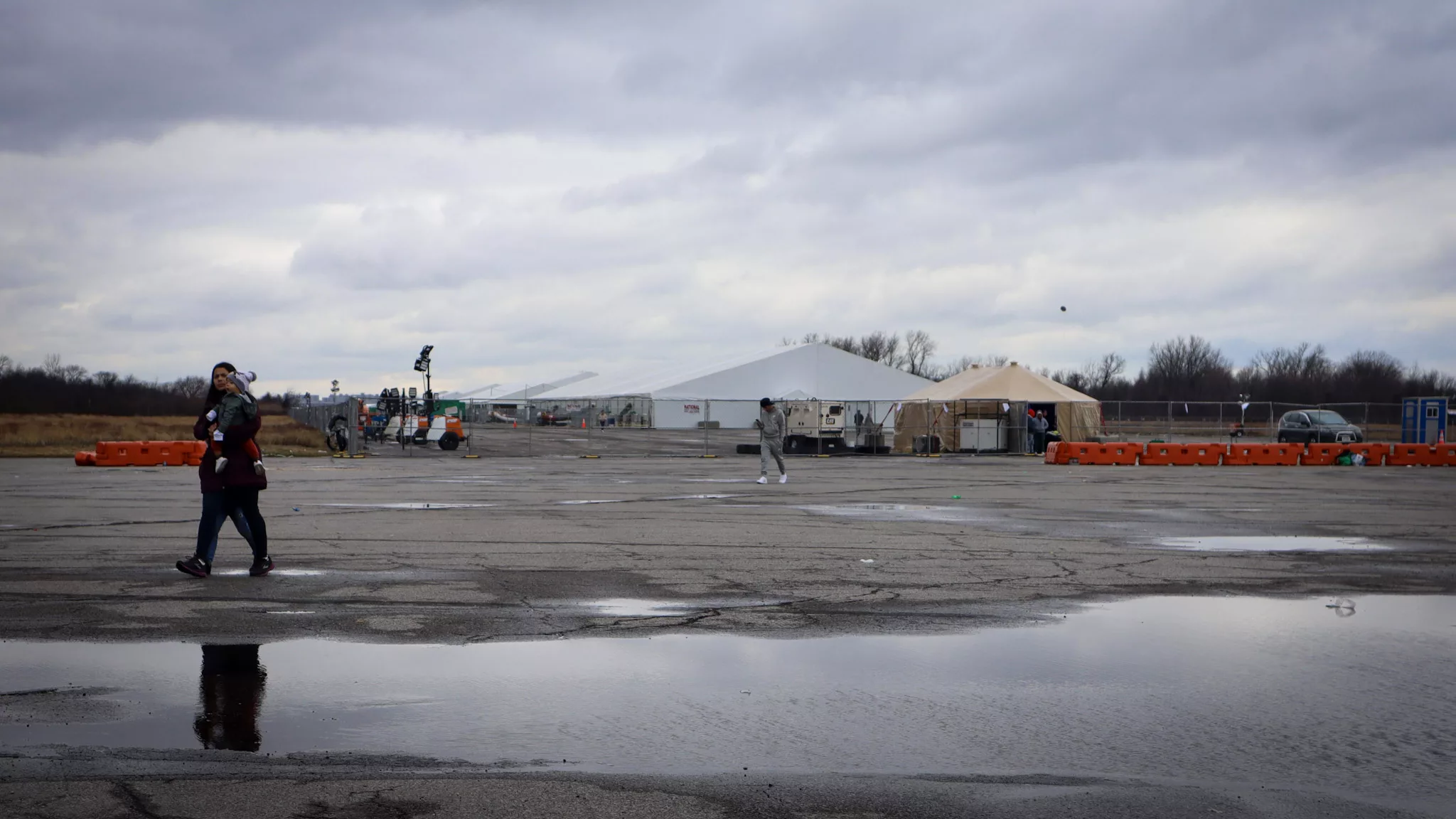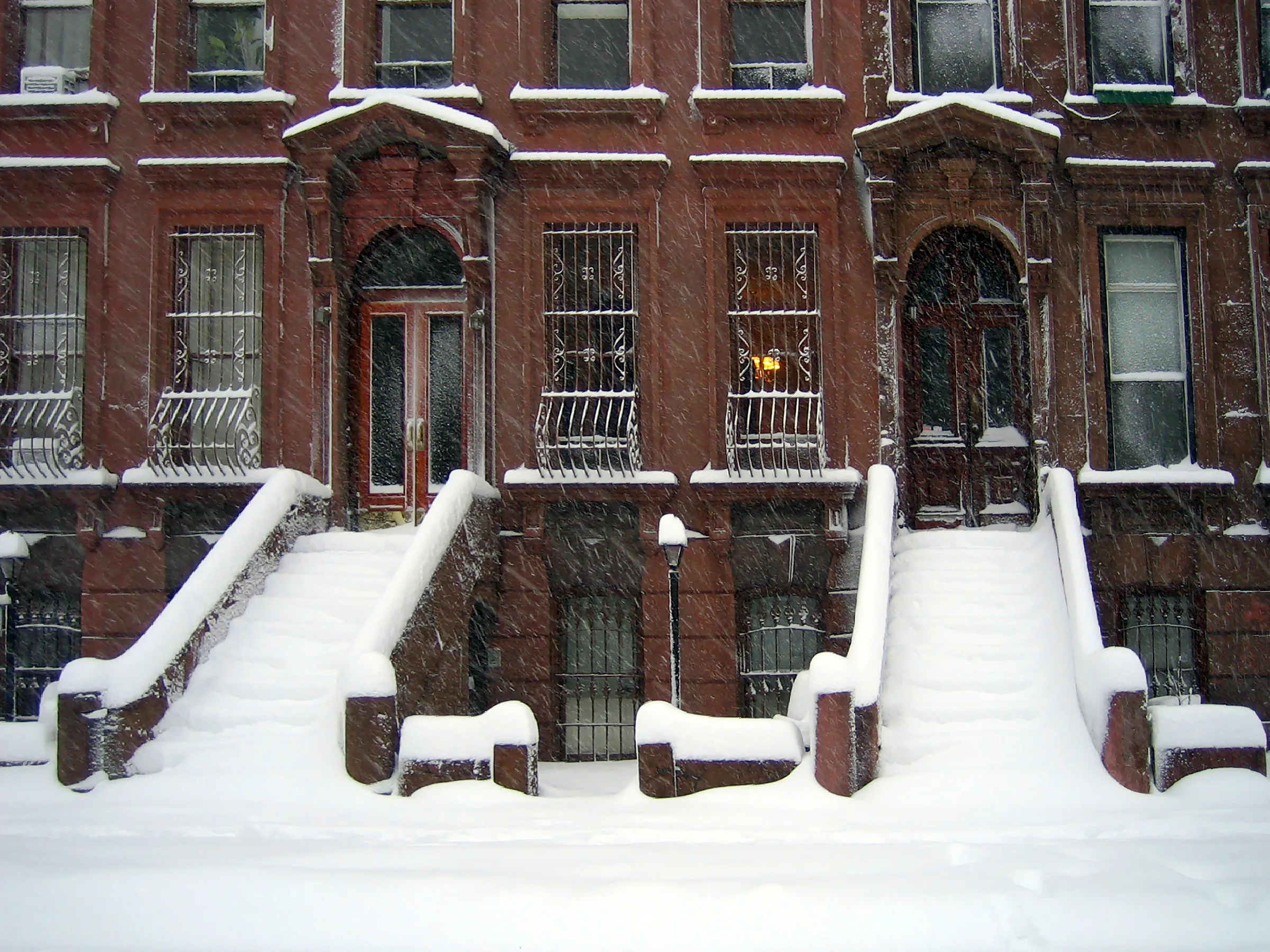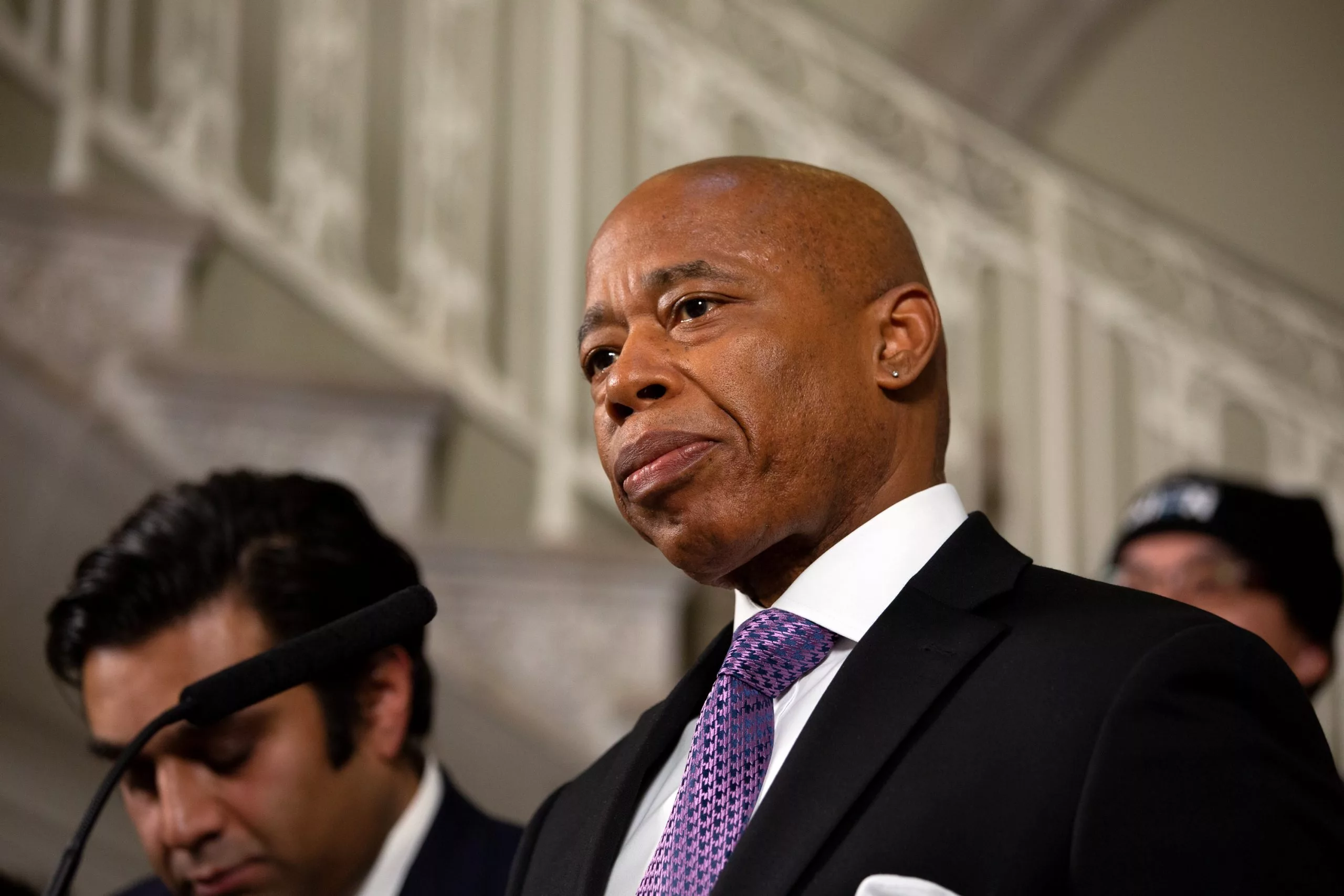Immigrant advocates Documented spoke to recently shared concerns that the city-sponsored ActionNYC hotline frequently goes unanswered, leaving many asylum seekers unable to receive the assistance they need.
Documented spoke to the supervisor of the ActionNYC hotline, Elizabeta Markuci, Esq., to shed some light on the demand ActionNYC is seeing — from receiving under 100 calls per day, to over 200 calls now — and what they are doing to meet it. She told Documented that “on average, around 90%” of calls are still answered by ActionNYC, despite the high demand they have been seeing. At one point a few months ago, they had close to 300 calls a day, Markuci said.
Markuci is the Director of Hotline Services, Training and Policy Development for the immigrant and refugee services division of Catholic Charities Community Services.
More than 70,000 immigrants have arrived in New York City since last spring, and tens of thousands have needed to file their asylum applications before the required one-year deadline.
A survey of 700 migrants in NYC by Make The Road, published this month, found that 95% are seeking asylum and 93% of those asylum-seeking respondents have not yet found a lawyer. Asylum seekers face two significant challenges in submitting their applications: lack of awareness about the need to actually file it, and difficulty finding lawyers to assist them in filling out their applications safely and responsibly.
The advocates Documented spoke to emphasized that failing to meet the one-year deadline to file for asylum puts immigrants at risk of encountering more complex legal cases. This is where ActionNYC’s help comes in. Advocates say the service has had the good reputation of assisting immigrants with their enquiries and providing legal guidance, which has persuaded them to refer immigrants who need help. The New York City-funded service provides free and safe immigration legal help to all New Yorkers, regardless of immigration status.
ActionNYC’s hotline is 800-354-0365, and is also accessible by calling 311 and saying “ActionNYC.” The hotline operates between 9 a.m. to 6 p.m. from Monday to Friday. It is free, anonymous, and available in over 200 languages.
Also Read: Migrants Struggle to Find Lawyers to Meet One Year Deadline to File for Asylum
Fisayo Okare: Have you been seeing higher-than-normal demand in the number of immigrants reaching out for assistance?
Elizabeta Markuci: We have been managing this hotline since 2016. At that time, we were getting under 100 calls a day. We are now getting on average over 200 calls a day. The volume has certainly increased every year, a little, but more as the City does more outreach and people understand this as a trusted resource.
Last March, when we started to see the increased numbers of folks coming to the City, there was an uptick. We send in reports — it used to be weekly, now it’s maybe bi-weekly, just to keep noticing trends. As the call volumes have increased, we have tried to staff up to address that increasing need. That takes time — to train folks, hiring and all. Obviously, we are all wanting to do more, and wanting to answer every call.
As someone who was an advocate, as a lawyer representing folks personally for over a decade, I don’t ever want to hear a story where someone is turned away. But are they calling during our hours of operation? Right, 9 a.m. to 6 p.m.? Or are they calling on the weekends? You know. They are getting a live person, and we do have a mandate from the city to answer 90% of the calls that come in. In the past, we’ve exceeded those targets, we were maybe answering 90%, 97%, 98% of the calls. We were handling that volume. There’s an expectation that we were always answering, right, and we want that. That’s the goal.
What’s the percentage of calls ActionNYC is able to answer now that demand is high?
Still over 90%. On average, around 90%. One month, when we had close to 300 calls a day — a few months ago — that was a little harder. Other months, we’re still exceeding that target. So, we want to get there. The city has been working with us to try to support us, to provide resources to step up. So that feedback is important to us. We want to continue to provide service at that quality.
So, the City partners with Catholic Charities directly to help handle ActionNYC?
Correct. We handle the hotline services aspect, where we help people schedule appointments with the ActionNYC providers that are various agencies across the city. We use a scheduling system to try to connect people to that resource. If those appointments are not available — because sometimes they get filled up [when] there’s an increased demand, [and] it’s understandable under the circumstances — we try to offer referrals or we might tell folks to call back.
Are there enough language interpreters for ActionNYC? If a French-speaking person calls and the available French interpreters are on other calls with immigrants, what happens in that situation?
We do have staff that speak different languages. We just hired a hotline operator for ActionNYC that speaks Haitian Creole that was supported by the city initiative. We use a language line that is funded by the city to help us access interpreters. Unfortunately, if someone is on the call, you want to not have to call that person back, you want to help them in the moment. So, we connect to telephonic interpreter services to help facilitate various languages. Although we have language capacity on the line, sometimes that’s not always feasible. Because of the volume, you need people available to take calls and not be waiting for calls from specific language needs.
Do individuals who apply to volunteer as a hotline operator or work with ActionNYC as a language interpreter come from an immigration background? How long of a training process do new recruits go through before becoming well-equipped to handle the hotlines?
In the past, most of the representatives had an immigration background. They, maybe, were involved in casework, paralegal-type work — they had some of that. We look for that now, but in terms of filling the need as quickly as we can, I’ve tried to expand the scope of our hiring.
I have recently hired someone who did not have an immigration background, but had a background in helping folks with accessing medical assistance. So they understand privacy, security issues, confidentiality, situations where folks may have sensitive issues that they’re discussing. They have transferable skills. Then we train them for several weeks to teach them immigration law. We use tools, trainings from CLINIC. My job is to sort of build that skill set up with the hotline counselors.
Some of them are becoming BIA-accredited reps to help further deepen the kind of support we can provide on the frontline to help assuage that gap. We do go through an extensive training process that we are redeveloping now to meet this moment.
Recently, advocates and elected city officials have been calling for the city administration to allocate at least $70 million for legal services for asylum seekers in the city budget that will be adopted at the end of this month. Will increased funding from the city help improve the capacity and services of ActionNYC right now?
Definitely. That is something the city, at least, has expressed to us — an interest in doing that. They announced a new program this week, and I’m very hopeful that that’s going to help connect more people to the services that we need.
Yes, the City announced an asylum application help center that will open in the coming weeks. Is that going to be connected in any way to what ActionNYC is doing?
We are going to be partnering with the city to try to connect people to that resource [the asylum application help center] to some degree. Certainly … once [the City] actually rolls it out and gives us all the information, we definitely are hopeful that that’s going to help us meet the moment and rise to the occasion to support this population.
We’re happy to partner with the City to get more investment in those resources, because for us, when someone’s calling, looking for help, we want to connect them to help that’s trusted, that they can rely on.
In my course of being a lawyer, I’ve seen a lot of people that couldn’t get that help. And where there are not sufficient trusted legal support services, that’s when folks can become vulnerable to individuals that prey on that insecurity and lack of resources, and so you see different manifestations of immigration consultant fraud.
So any investment that the city can make in providing services for this population [will help] to move them forward, in seeking security, and enabling them to become more self-sufficient.
